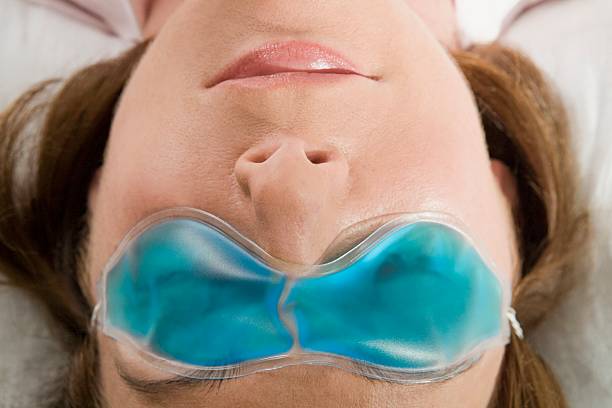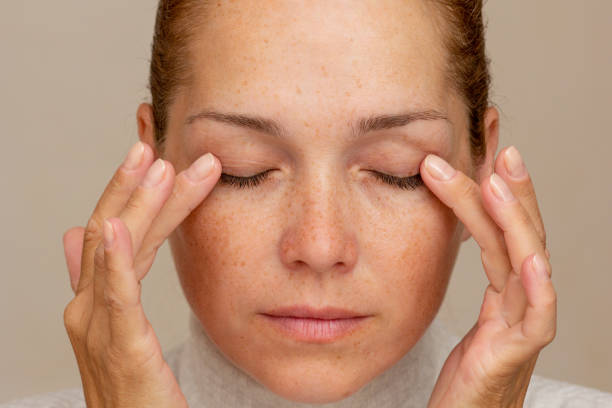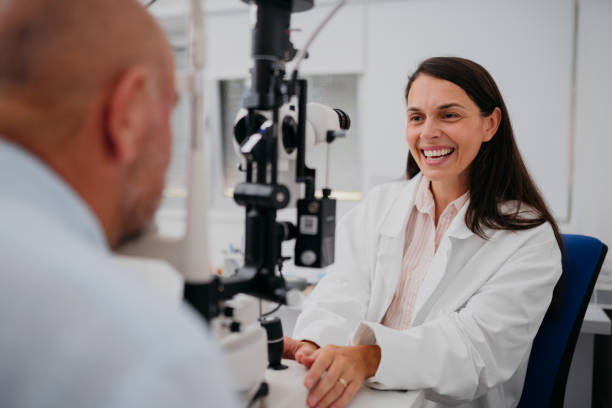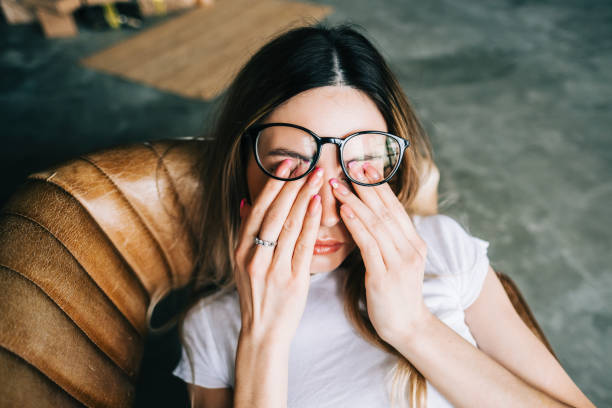Introduction: Why Your Eyes Feel Tired
Do your eyes feel heavy, dry, or strained after a long day? You’re not alone. Millions of people experience eye fatigue from long hours on screens, reading, or even poor lighting. Other common causes include dehydration, allergies, and not getting enough rest at night. While tired eyes may not always mean a serious health issue, they can affect your comfort, focus, and productivity, making it harder to stay alert and get things done.
The good news? You don’t always need costly treatments or special equipment. Many simple home remedies can help relieve tired eyes naturally. From cold and warm compresses to better hydration and eye-friendly foods, small daily habits can reduce strain and restore comfort. By learning how to care for your eyes at home, you can refresh your vision, protect your eye health, and feel more energized. Let’s explore the best natural ways to soothe your eyes and keep them healthy for the long run.
Common Causes of Tired Eyes
Before trying remedies, it helps to understand why your eyes feel tired. Eye strain often develops when your eyes work harder than usual or when outside factors make it difficult for them to stay comfortable. Some common triggers include:
- Prolonged screen time – staring at computers, phones, or TVs for hours without breaks can dry out your eyes and tighten the muscles around them.
- Poor lighting – working in dim light or under harsh glare makes your eyes strain more to focus, which leads to fatigue.
- Dry eyes – caused by air conditioning, heating, or low humidity, dryness can leave your eyes feeling scratchy and irritated.
- Lack of sleep – not getting enough rest at night prevents your eyes from recovering, making them look red and feel heavy.
- Allergies – seasonal or environmental allergies can trigger itchy, watery, or swollen eyes that feel constantly tired.
- Stress and fatigue – both physical and mental exhaustion can take a toll on your vision and overall eye comfort.
Knowing these triggers can help you manage your daily habits and reduce strain. If tired eyes are frequent or severe, it’s always best to consult an eye doctor to rule out underlying conditions. But for mild discomfort, home remedies can provide fast and effective relief.
Simple Home Remedies to Relieve Tired Eyes
1. Use a Cold Compress

A cold compress is one of the fastest ways to refresh tired eyes. The cool temperature helps reduce swelling, irritation, and redness.
How to do it:
- Soak a clean washcloth in cold water.
- Place it over your closed eyes for 5–10 minutes.
- Repeat as needed throughout the day.
You can also use chilled cucumber slices or cold spoons for a spa-like treatment.
2. Try a Warm Compress
While cold compresses reduce puffiness, warm compresses help with dry, tired eyes. Heat improves blood circulation and relaxes strained muscles around the eyes.
Steps:
- Soak a soft cloth in warm water.
- Place it over closed eyes for 10 minutes.
- Re-wet the cloth when it cools.
This method can also help loosen clogged oil glands, which often contribute to dry eyes.
3. Follow the 20-20-20 Rule
Eye strain often comes from staring at screens without breaks. The 20-20-20 rule is a simple yet effective remedy.
Here’s how it works:
- Every 20 minutes, look at something 20 feet away for at least 20 seconds.
This relaxes the eye muscles and reduces digital strain. The American Optometric Association recommends it as a healthy eye habit.
4. Stay Hydrated
Dehydration can make your eyes feel dry, itchy, and tired. Drinking enough water keeps your eyes moist and reduces discomfort.
Quick tips:
- Drink 8–10 glasses of water daily.
- Limit alcohol and caffeine, which can dry out your eyes.
- Add hydrating foods like watermelon, cucumber, and oranges to your diet.
5. Blink More Often
When using digital devices, people blink less often, which leads to dryness and strain. Making a conscious effort to blink more can rehydrate and refresh your eyes.
Pro tip: Set reminders or use eye drops if needed.
6. Adjust Your Lighting
Poor lighting is a major cause of tired eyes. Too much brightness or glare forces your eyes to work harder.
Tips for eye-friendly lighting:
- Use soft, natural light whenever possible.
- Avoid facing windows directly when working on a screen.
- Position desk lamps to reduce glare.
According to the Mayo Clinic, proper lighting reduces strain and protects eye health.
7. Massage Around Your Eyes

Gentle massage improves blood flow and relaxes muscles, helping reduce strain.
How to do it:
- Use clean fingers to massage your temples and around the eyes.
- Apply gentle circular motions for 1–2 minutes.
- Avoid pressing directly on the eyeball.
This simple step can ease tension headaches that often come with tired eyes.
8. Use Artificial Tears
If your eyes feel dry, over-the-counter lubricating drops (artificial tears) can help. They mimic natural tears and provide instant moisture, making your eyes feel more comfortable.
Look for preservative-free options for daily use, since these are gentler and safer for long-term relief. Some drops are made for occasional dryness, while others are designed for people with chronic dry eye. Always follow product directions, and if your symptoms don’t improve after regular use, talk to an eye doctor to rule out underlying conditions.
9. Eat Eye-Friendly Foods
Nutrition plays a big role in eye health. Antioxidants, vitamins, and omega-3 fatty acids can reduce fatigue and protect vision.
Best foods for tired eyes:
- Carrots and sweet potatoes (rich in Vitamin A)
- Spinach and kale (lutein and zeaxanthin)
- Fatty fish like salmon (omega-3s)
- Nuts and seeds (Vitamin E)
- Citrus fruits (Vitamin C)
For more on eye nutrition, check the National Eye Institute’s guide.
10. Get Enough Sleep
Lack of rest is one of the biggest causes of tired eyes. Sleep allows your eyes to repair and refresh.
Healthy sleep tips:
- Aim for 7–9 hours of quality sleep per night.
- Keep a consistent bedtime routine.
- Reduce screen time an hour before bed.
Lifestyle Changes to Prevent Tired Eyes
Relief is good, but prevention is even better. Making a few small lifestyle changes each day can go a long way in keeping your eyes healthier and reducing the chances of future strain. These simple steps not only help prevent tired eyes but also protect your vision in the long run.
- Limit screen time whenever possible. Too much time on computers, phones, or TVs makes your eyes work harder. Cutting back gives your eyes time to rest.
- Take breaks during long tasks. Short pauses every hour allow your eyes to relax and recover, especially if you are reading or working at a desk.
- Wear blue light glasses if you work on computers daily. They help reduce the impact of digital screens and may ease eye strain during long hours of work.
- Use a humidifier to add moisture to dry indoor air. This prevents dryness and irritation, especially if you live in a place with low humidity or use air conditioning often.
- Get regular eye check-ups to catch issues early. Routine visits to an eye doctor can help spot problems before they get worse and keep your eyes in top shape.
By making these habits part of your daily routine, you can protect your eyes, prevent discomfort, and enjoy clearer, more comfortable vision.

When to See a Doctor
While most tired eye cases improve with simple home remedies, there are times when professional help is needed. It’s important not to ignore warning signs, as they may point to something more serious than everyday eye strain. See an eye doctor if you experience:
- Persistent eye pain – ongoing discomfort may be linked to infections, dry eye syndrome, or other medical issues.
- Blurred vision – difficulty focusing could signal refractive errors, eye disease, or early signs of conditions like diabetes.
- Extreme sensitivity to light – this may be caused by corneal problems, inflammation, or other eye health concerns.
- Frequent headaches – recurring headaches often accompany vision problems or uncorrected eye strain.
- Redness or swelling that doesn’t improve – lingering irritation can point to infection, allergies, or blocked tear ducts.
These symptoms may signal an underlying condition that requires treatment, not just rest. Getting timely care from an eye doctor ensures that problems are addressed early and prevents further damage. Protecting your eyes now can help maintain clear, healthy vision in the future.
Conclusion: Refresh Your Eyes Naturally
Tired eyes can disrupt your day, making it harder to focus at work, enjoy reading, or even relax with family. The good news is that relief doesn’t have to be complicated or costly. From cold compresses and gentle eye massages to eating eye-friendly foods and getting enough quality sleep, simple home remedies can make a big difference in how your eyes feel and function. These small steps not only refresh tired eyes but also support long-term eye health.
Start with one or two tips today and notice the improvement in your comfort and clarity. Over time, adding more of these habits into your routine will help prevent eye strain before it starts. Your eyes work hard for you every single day—give them the consistent care they deserve so they can stay strong, healthy, and refreshed.
👉 Have you tried any of these remedies? Share your favorite tip for relieving tired eyes in the comments below!

